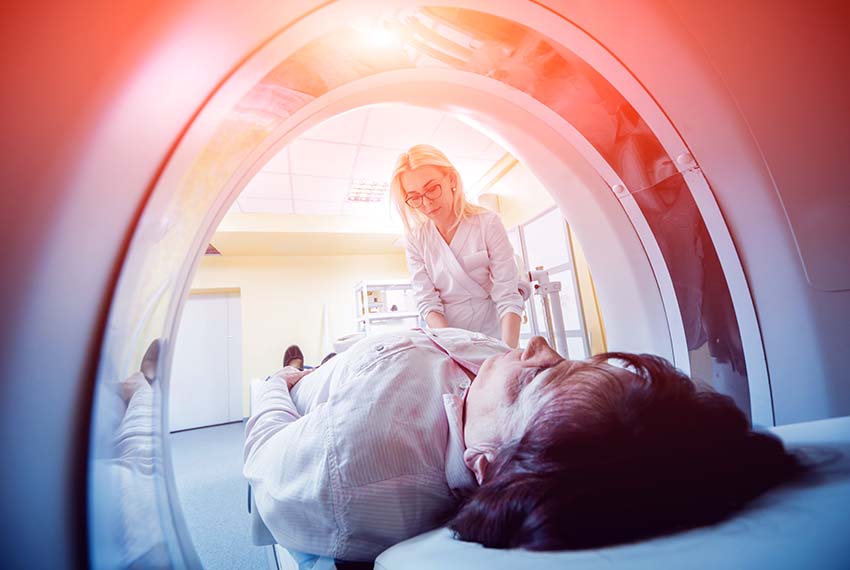
for radiologists to detect lesions in MRI and CT scans faster and more accurately for various indications like prostate-, breast-, and lung cancer. Therefore, we used high-quality data matched with MRI-based biopsies. Our models have also been trained on rare and atypical cases to detect those, which are less familiar to the radiologist’s eye

and involved in research projects with well-known German and Swiss university hospitals and institutes such as University Hospital of Jena (Germany), Charité Berlin (Germany), Fraunhofer Institut IMBT (Germany), Kantonspital Aarau (Switzerland), University Hospital Zurich (Switzerland)

and besides our innovative R&D unit, we are listed as an official Software as a Medical Device (SaaMD) developer and distributor in Europe by the Federal Institute for Drugs and Medical Devices (BfArM). We are involved in the development of a European DIN standard for the development of Deep Learning methods
The European regulation for the approval of software as a medical device (IEC 62304 and IEC 82304) and especially for AI-supported software is associated with a particularly large amount of effort.
Foreign companies, which are planning to launch their medical software products or their medical digital solutions in the German-speaking life science market (Germany, Austria and Switzerland) as well as in the rest of Europe, often struggle to get an overview of the legal requirements for software as a medical device and the correct way to implement them.
In collaboration with our regulatory affairs and quality professionals, we advice companies on the precise steps to be taken in order to design, validate, record, and register software as a medical device in compliance with the required standards according to MDR IIa (CE).

Founder, Investor, CEO: Diplom Kaufmann, experience as a CEO in the development and marketing of software products for the healthcare industry.

Founder, Head of Medical Advisory: PhD of Biochemistry, experience in business development

Founder, Investor: Heart surgeon with extensive healthcare network

Founder, Product Owner: PhD of Physics, experience as a CTO in radiology facilities

Project Management & Medical Affairs: Graduate biologist, graduated specialist in public relations

Advising Radiologist: Medical Specialist in Radiology (MRI, oncological imaging, traumatology)

Machine Learning Engineer: Medical Engineer, experience with AI algorithms, and software engineering

Software Developer & AI Expert

Machine Learning Engineer: Medical Engineer, experience with AI algorithms, and software engineering

Machine Learning Engineer: PhD candidate in Physics, experience with data analysis and software development

Head of Quality & Regulatory, Operations: Biomedical Engineer, medical device standards and regulatory affairs specialist
FUSE-AI GmbH and Jena University Hospital are developing and validating a deep-learning-based assistance system for MRI to diagnose prostate cancer without the need for contrast agents. The benefits of non-contrast prostate imaging will provide cost savings for healthcare systems, time savings for examining physicians, and risk minimization for patients. As a cloud-based solution, the software interacts with different PACS/RIS and its implementation into the tele-radiology infrastructure is quite simple.
Photo: Prof. Dr. Tobias Franiel
We specifically aim to demonstrate, in collaboration with three Swiss hospitals, that AI-assisted prostate segmentation and lesion detection in multiparametric magnetic resonance imaging (mpMRI) equals or exceeds the generally applied gold standard. All participating project partners expect to increase the efficiency as well as the reliability of the assessment of the MRI examination. Additionally, it will be proven that the robustness to the gold standard can be increased as well
Photo: left Dr. Felice Burn / right Dr. Alexander Cornelius
FUSE-AI is co-author of the "Guideline for the Development of Deep Learning Image Recognition Systems in Medicine", DIN SPEC 13288 (english version p.20). A DIN SPEC is a standard document prepared under the direction of DIN, Deutsches Institut für Normung e.V., according to the PAS procedure. This document was developed and adopted by the initiator(s) and authors named below:
Deutsche Röntgengesellschaft e. V.: Dr. Bettina Baeßler
FUSE-AI GmbH: Matthias Steffen und Dr. Sabrina Reimers-Kipping
MindPeak GmbH: Felix Faber, Marc Päpper und Dr. Tobias Lang
PSIORI GmbH: Dr. Sascha Lange und Lars Eickmeier
Hochschule Düsseldorf: Prof. Dr.-Ing. Thomas Zielke
Quality Match GmbH: Dr. Daniel Kondermann
FUSE-AI is actually developing the KIRMES project together with the University of Lübeck, BG Klinikum Hamburg and the Institute for Futures Studies and Technology Assessment Berlin. The aim of the project is to identify poorly healing bone fractures at an early stage using algorithmic prognostic methods in order to positively influence healing through additional therapy options and to prevent delayed or complete failure to heal. The project will be funded by the Federal Ministry of Education and Research (BMBF) and VDI / VDE Innovation und Technik GmbH.
Fuse-AI is acting on behalf of a delegation of Ministers of Economics & Research from Northern Germany in 2019 invited by the German-Israeli Chamber of Industry & Commerce, Tel Aviv. We are looking for partners in Israeli universities and clinics to extend our research projects in the field of radiology, rare and degenerative diseases.
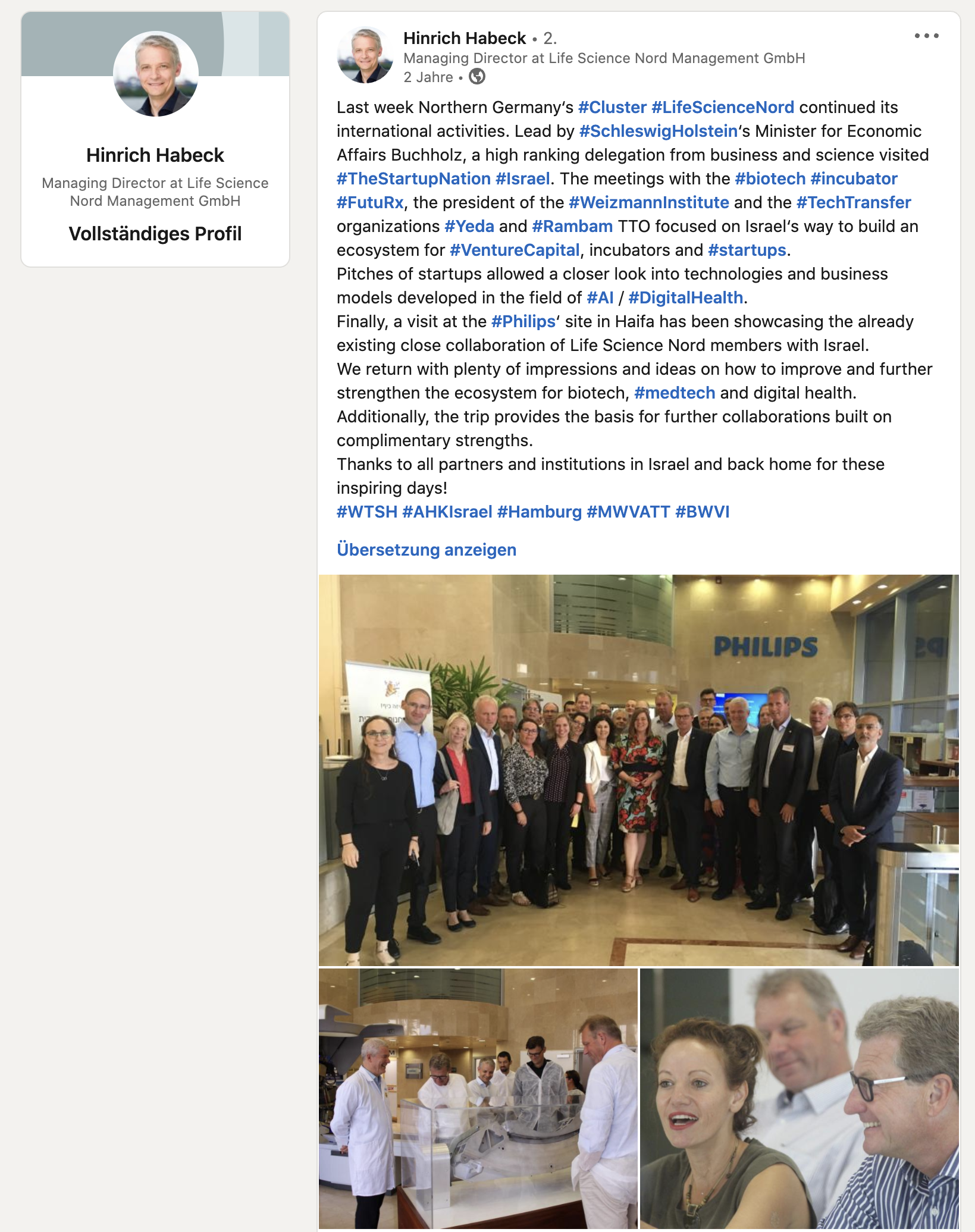
Algorithms can be trained on millions of medical images in order to learn the specific characteristics of a disease. We develop solutions for medical professionals that enable early and accurate diagnosis to increase the chances of successful patient treatment.
Would you like to improve image evaluation processes to validate or fasten diagnosis?Feel free to contact us if you would like to find out whether your idea can be implemented and what requirements are essential for it. We have many years of experience in developing deep neural networks (DNN) and convolutional neural networks (CNN) as well as with computer vision in the medical context.
We provide support in product development or offer services if there is a lack of internal know-how or capacities.
Contact
Dr. Sabrina Reimers-Kipping
Co-Founder, Head of Scientific and Medical Affairs
+ 49 40 - 450 318 - 0
sabrina.reimers-kipping@fuse-ai.de
Today, intelligent algorithms in bioinformatics are the basis for progress in applied biotechnological research, drug development and personalized medicine.
Our interdisciplinary team of biochemists, machine learning researchers and biologists is ideally suited to your bioinformatics questions. We develop develop convolutional and deep neural networks (CNN / DNN), carry out exploratory data analyzes, develop intelligent algorithms and use visualizations and computer simulations to uncover new, previously unknown relationships in biomedical data.
Which method fits best - Random Forest, Feature Selection, PCA, or Clustering?Questions about the prediction of classification or regression (e.g. prediction of an abnormal finding, life expectancy, healing prospects) can be answered using methods of supervised learning, such as linear models, ensemble methods, decision trees, random forests, and feature selection.
Knowledge generation and pattern recognition from large datasets (e.g., feature clustering, dimensionality reduction of large datasets, extraction of relevant information) are determined using unsupervised learning methods like PCA, k-means clustering, hierarchical clustering, anomaly detection, manifold learning, neural networks (self-organizing maps, GAN)
Contact
Anne Wesche
Project Manager & Medical Affairs
+ 49 40 - 450 318 - 69
anne.wesche@fuse-ai.de
Software solutions have long been part of our modern medical healthcare system. The European regulation for the approval of software as a medical device (IEC 62304 and IEC 82304-) and especially for AI-supported software is associated with a particularly large amount of effort.
Your Software as a Medical Device – SaMDCompanies with little experience in this area often struggle to get an overview of the legal requirements for software as a medical device and the correct way to implement them.
These challenges are also faced by foreign companies that intend to launch their medical software solutions in the German or European market.
In collaboration with our regulatory affairs and quality professionals, we advise you on the precise steps to be taken in order to design, to validate, to record and register your SaMDs in compliance with the required standards. In addition, we also advise you on issues relating to software development, validation, technical documentation and approval for mobile medical applications ("medical apps").
Contact
Juri Rohde
Head of Quality & Regulatory Operations
+ 49 40 - 450 318 - 34
juri.rohde@fuse-ai.de
With increasing digitization, companies have more and more information from different areas of their own business at their disposal. This data can be analyzed in order to derive added value for the company.
We offer consulting in the area of Business Intelligence / Data Analysis / Data Science, preparation of data for further analyses, execution of data analyses for R&D, marketing and business intelligence.
Added Value in Research, Marketing, or Business DevelopmentOn behalf of our customers such as Olympus Europa SE & Co. KG and saniva diagnostics GmbH among others, we have structured and processed historical medical procedure, market and sales numbers in various market intelligence projects, as well as created forecasts and presented the results in a dashboard. In addition, we provide support for research and development activities by analyzing extensive sensor data of laboratory experiments with techniques of explorative data analysis, signal processing and feature extraction.
Contact
Dr. Sabrina Reimers-Kipping
Co-Founder, Head of Scientific and Medical Affairs
+ 49 40 - 450 318 – 0
sabrina.reimers-kipping@fuse-ai.de
Strategic research collaborations with regional, national and international partners from science and industry benefit companies as well as universities.
Are you still looking for a collaborative partner in the field of medical image analysis?We believe that active collaboration in research networks and alliances offers high added value. We are engaged in applying for grants to collaborative projects, especially in the area of medical image analysis.
Examples:Product Development UltraWear: MedicalApp for AI-Assisted Bio-Feedback in Physiotherapy
FUSE is engaged in product development on a new type of medical app called UltraWear. This app provides patients suffering from chronic back pain AI-powered feedback for assisting in the correct execution of physical therapy exercises.
The product development is being driven by an interdisciplinary team of Fraunhofer Institute for Biomedical Engineering (IBMT), Charité Berlin and others. UltraWear is funded by the Federal Ministry of Education and Research.
AI-Based MRI Diagnostics for Prostate CancerA cost-saving assistance system for MRI diagnosis of prostate cancer is being developed by FUSE-AI and Jena University Hospital since April 2020. The aim of the cooperation is to develop and validate a deep-learning-based assistance system used in radiology. The "Central Innovation Program for SMEs" ZIM of the Federal Ministry of Economic Affairs and Energy is funding the cooperation for a period of two years.
Project KIRMES - Artificial Intelligence in Radiological MeasurementsFUSE-AI is currently developing the KIRMES project together with the University of Lübeck, the BG Klinikum Hamburg and the Institute for Futures Studies and Technology Assessment Berlin. The aim of this project is to detect poorly healing fractures of long bones at an early stage by applying algorithmic prognostic methods in order to positively influence healing by additional therapy options and to prevent delayed or complete non-healing. The project is funded by the German Federal Ministry of Education and Research (BMBF) and VDI / VDE Innovation und Technik GmbH.
Contact
Dr. Sabrina Reimers-Kipping
Co-Founder, Head of Scientific and Medical Affairs
+ 49 40 - 450 318 - 0
sabrina.reimers-kipping@fuse-ai.de
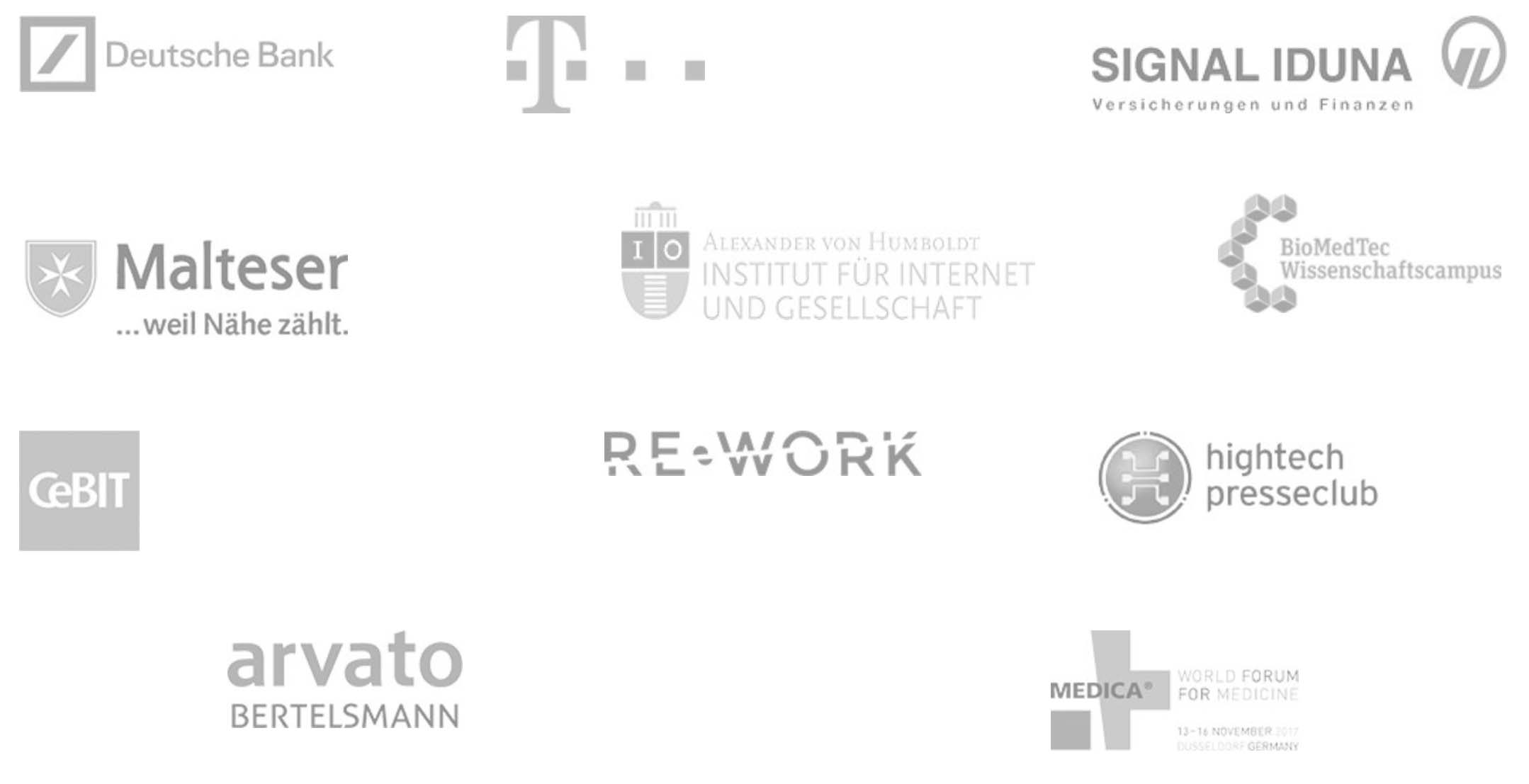
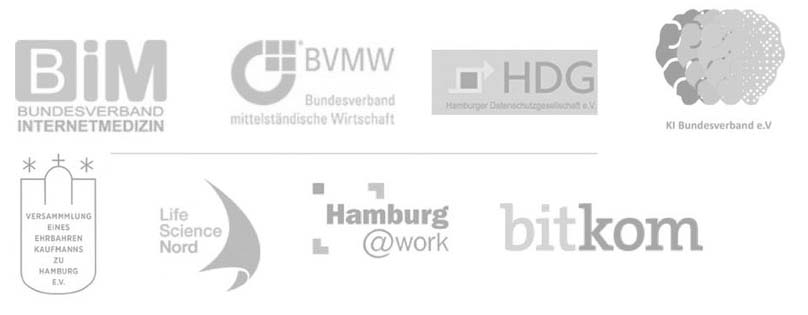
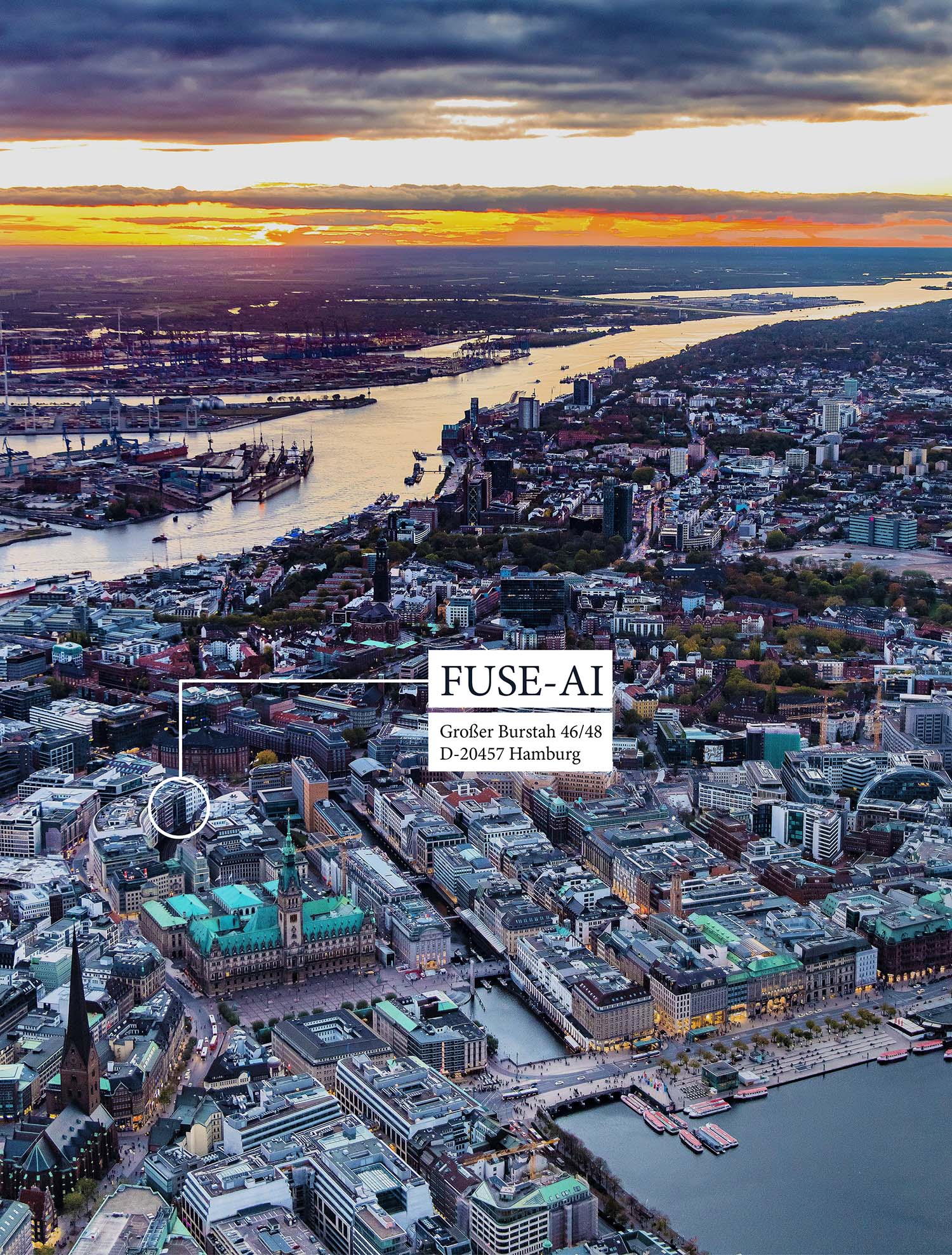
FUSE-AI GmbH
Managing Director: Matthias Steffen
Amtsgericht Hamburg, HRB 147853
Großer Burstah 46-48, D-20457 Hamburg
Phone: + 49/40/45 03 18 - 0
Fax: + 49/40/45 03 18 - 18
E-Mail: matthias.steffen@fuse-ai.de